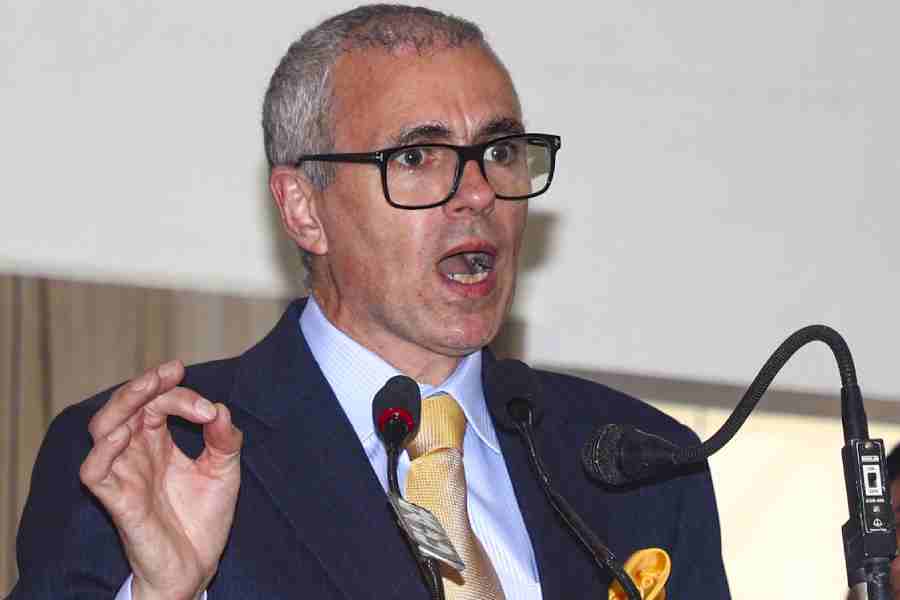Millions of Americans may be leaping into a summer of newly unmasked normalcy. But inside Mandy Lin’s apartment in Philadelphia’s Chinatown neighbourhood, the lockdown drags on.
Her 9-year-old son is struggling through the last lessons of fourth grade on a laptop while many of his classmates are back in school. His grandmother stays inside all day. For exercise, Lin’s family paces their building’s parking lot or ventures to a nearby park.
But it is not Covid-19 keeping the family from rejoining a bustling world of restaurants, schools and public spaces.
“It’s not safe to be outside,” Lin, 43, said. “There has just been unending violence and harassment.”
A surge in anti-Asian attacks during the pandemic is now holding back many Asian American families from joining the rest of the country in getting back to normal.
As schools phase out remote learning, companies summon employees back to work and masks fly off people’s faces, Asian Americans say that America’s race to reopen is creating a new wave of worries — not about getting sick, but whether they will be attacked if they venture back onto a bus or accosted if they return to a favourite cafe or bookstore.
In more than a dozen interviews across the country, Asian Americans detailed fears about their safety and a litany of precautions that have endured even as the country has reopened. Some people are still avoiding subways and public transportation. Others are staying away from restaurants. Some dread the return of business travel or the end of remote work.
Their fears come as attacks continue. Stop AAPI Hate, a coalition of community and academic organisations, tracked more than 6,600 attacks and other incidents targeting Asian Americans and Pacific Islanders from March 2020 to March 2021.
A survey this spring found that one in three Asian Americans worried about becoming victims of hate crimes. And while nearly three-fifths of white fourth graders are now back in class, just 18 per cent of their Asian American peers have returned to in-person learning, according to federal surveys.
Asian Americans said they hoped the threats would ebb as more people got vaccinated and the pandemic faded. But person after person echoed the same worry: There is no vaccine against bigotry.
“It’s embedded itself so deeply,” said Lily Zhu, 30, a tech worker in Pflugerville, Texas. “When we got our Covid shots, it was marking the end of this weird year where everyone was frozen in time. But there’s still this paranoia.”
Zhu is fully vaccinated but says she no longer takes the bus and does not know if she will ever again ride on it alone. As she ventures back into public spaces, she feels more comfortable at Asian markets like H Mart or the 99 Ranch Market in Austin.
She worries about her parents in Ohio, who have gone back to commuting and taking art classes in downtown Cleveland, and who now own a gun for protection. They messaged Zhu with concern after six women of Asian descent were among eight people shot to death at massage spas around Atlanta in March.
In Philadelphia, Lin is rattled by the stories of violence and verbal assaults against Asian Americans that pop into her WeChat groups: A pregnant woman who was punched in the face. A 64-year-old man attacked not far from the Lin family’s apartment by someone shouting anti-Asian epithets. A 27-year-old woman hit in the head without any warning or provocation.
Lin said her family had hewed to the same guarded routine even as Philadelphia had celebrated the decline in coronavirus cases by ending capacity limits on businesses and announcing a return to full-time, in-person school next autumn.
She shops for food at nearby markets in Chinatown. Her husband brings home anything else they need from his supermarket job. And every school day, she sits beside her 9-year-old son, who has autism, to help him with his virtual classes.
Lin is afraid he is falling further behind by not being around other students, but she has deep concerns about sending him back: His safety. The two-mile trip to his school. The fact that he cannot yet get vaccinated.
The disparities in returning to school have become a particularly urgent concern for groups representing Asian American parents. They worry what will happen next year if their children continue to feel unsafe.
But it has not been enough for Lin. Not yet.
“I feel really conflicted about what to do to support my child,” she said.
Anna Perng, a community organiser in Philadelphia who has spent the past year calling out anti-Asian hate and getting people vaccinated, said she struggled to persuade some wary Chinese American families to attend the city’s annual flower show at FDR Park last weekend.
It is a huge event in a neighbourhood that is miles from Chinatown, and an anxious step for families who still feel threatened, Perng said. She had got discounted tickets and arranged a Zoom chat to answer their questions. “We are going to have to work hard to help targeted communities feel safe,” she said.
New York Times News Service










